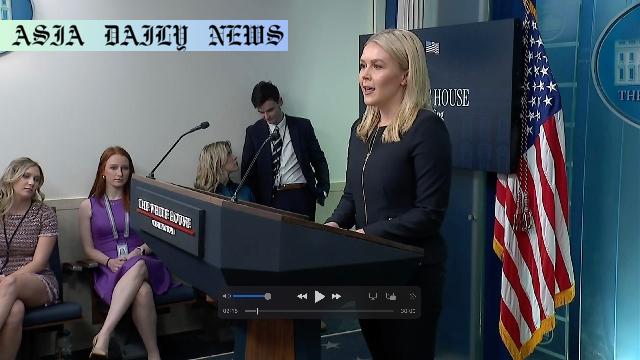Hamas: The US confirms unusual direct dialogue with the Islamist group to secure the release of five nationals detained in Gaza.
The United States confirms direct talks with Hamas.
The discussions center on the release of five US hostages in Gaza.
This marks a rare move given Hamas’s designation as a terrorist organization.
The meetings were held in Doha by US envoy Adam Boehler.
Israel was reportedly consulted in this process. Hamas indicates talks were initiated by the US.

Introduction: Unprecedented US Engagement with Hamas
The United States has made an extraordinary diplomatic move by engaging directly with Hamas to secure the release of five US nationals detained in Gaza. This represents a significant departure from Washington’s long-standing policy of avoiding direct negotiations with groups it designates as terrorist organizations. Conducted in Doha, the meetings reportedly involved US envoy for hostage affairs, Adam Boehler, and Hamas representatives. This development highlights the complexities of international diplomacy in high-stakes human rights and security contexts.
The Background: Context of the US-Hamas Talks
Hamas, designated as a terrorist organization by the US since 1997, controls the Gaza Strip and has long been a focal point in the Israeli-Palestinian conflict. The capture of hostages is a recurring issue in regional conflicts, often leading to complicated negotiations. In this instance, five US citizens are believed to be among hostages held in Gaza, prompting an unusual outreach by the US government. The talks have included consultation with Israel, showcasing the delicacy and collaborative nature of this diplomatic effort.
A Shift in Policy: The Implications of Direct Dialogue
This move signals a pragmatic shift in US foreign policy, emphasizing the critical need to prioritize human lives over rigid diplomatic protocols. The talks in Doha underscore the Biden administration’s willingness to engage in unconventional strategies to achieve its objectives. However, the implications of such discussions are far-reaching, potentially altering the dynamics of US-Middle East diplomacy and reshaping perceptions of the US stance on dealing with non-state actors.
Responses from Stakeholders
White House Press Secretary Karoline Leavitt defended the decision, framing it as a good faith effort by the US to protect its citizens. Israel, a key ally, was reportedly consulted throughout the process, indicating a measured approach to maintaining regional partnerships. Hamas has reciprocated with acknowledgment, stating that the request for dialogue originated from the US side. This transparency from all parties indicates a mutual understanding of the gravity and urgency of the situation.
The Road Ahead: Challenges and Opportunities
While the talks mark progress, challenges remain. Hamas’s terrorist designation complicates the optics and potential long-term repercussions of such engagement. However, this move also opens the door for new avenues of dialogue in a conflict-ridden region. By prioritizing human lives, the US demonstrates a moral commitment that could resonate globally. The success of these efforts will likely influence future US policies in similar hostage situations, setting precedents for diplomatic flexibility.
Commentary
Balancing Principle and Pragmatism
The decision of the US to engage directly with Hamas is a bold and striking departure from traditional foreign policy. It demonstrates a shift toward a more flexible, results-oriented approach in the face of human rights concerns. While the designation of Hamas as a terrorist organization raises questions about the implications of such negotiations, it is undeniable that prioritizing the lives of American citizens reflects a profound moral and ethical consideration. This approach acknowledges the complexities of diplomacy in high-stakes situations where rigid stances might not yield desired outcomes.
The Role of International Collaboration
Notably, the involvement of Israel in the consultation process highlights the importance of collaboration in managing such delicate issues. The US’s willingness to engage not only Hamas but also its regional allies emphasizes the interconnectedness of international relations. It showcases that even when engaging with adversaries, maintaining alliances and ensuring transparency can serve as crucial components of the diplomatic effort. Inclusivity of stakeholders strengthens the credibility and efficacy of negotiations, paving the way for potential breakthroughs.
Potential Risks and Long-Term Implications
However, this move also warrants critical evaluation of its long-term impact. By engaging with Hamas directly, the US risks setting a precedent that might be exploited in future conflicts. It also raises potential concerns about inadvertently legitimizing a group labeled as terrorists. Nevertheless, the moral obligation to prioritize lives over ideological rigidity offers an argument against inaction. Ultimately, the success of these talks may determine whether this is remembered as a necessary strategy or a controversial policy shift.


